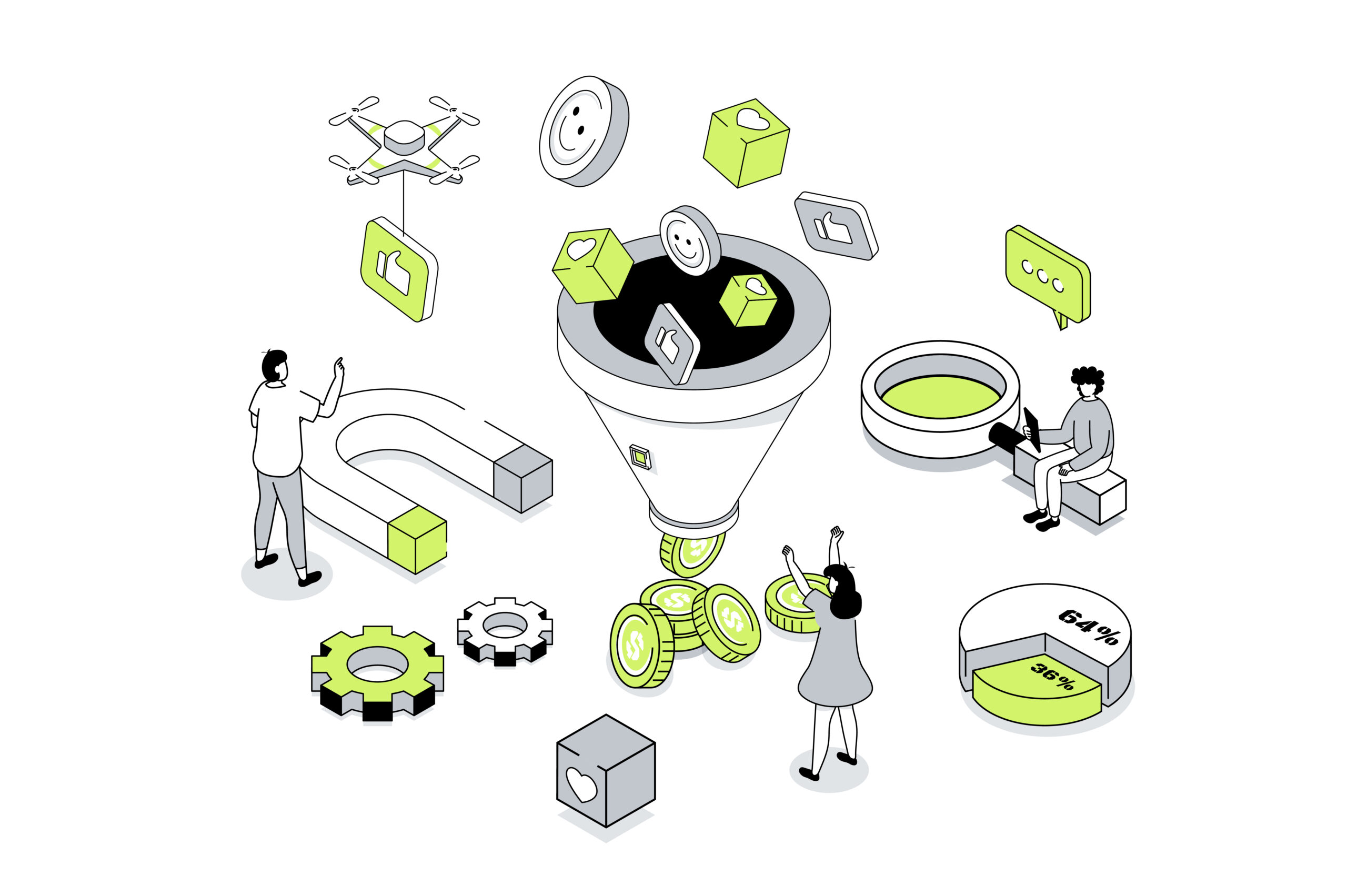- Marketing
- Mar 08
How to Monetize Your Website: A Complete Guide to Turning Traffic into Revenue

If you own a website with consistent traffic, you’re sitting on a valuable asset. However, many website owners aren’t sure how to convert their audience into revenue. Fortunately, there are various strategies to monetize your website, whether it’s a blog, an e-commerce site, or a niche content platform.
In this article, we’ll explore several effective ways to monetize your website, helping you turn visitors into a steady income stream.
1. Advertising: Display Ads
One of the most popular ways to monetize a website is through display advertising. Display ads are typically banner, sidebar, or pop-up ads that appear on your website. Every time a visitor clicks on or views these ads, you earn money.
- Google AdSense: The most widely used platform for display ads is Google AdSense. It automatically places relevant ads on your site based on your content and visitors. You earn revenue on a pay-per-click (PPC) or pay-per-impression (CPM) basis.
- Direct Ad Sales: If your website attracts a niche audience, you can sell ad space directly to companies or brands interested in reaching your visitors. This often brings in more revenue than automated ads.
Pros:
- Easy to set up.
- Scales with traffic.
- Requires little maintenance.
Cons:
- Earnings depend heavily on traffic volume.
- Ads can slow down your site or disrupt user experience.
2. Affiliate Marketing

Affiliate marketing is another lucrative way to monetize your website. With affiliate marketing, you promote products or services from other companies and earn a commission for every sale or lead generated through your referral link.
- Amazon Associates: One of the largest affiliate programs is Amazon Associates. You can promote any product sold on Amazon and earn a commission on sales.
- Niche Affiliate Networks: If you run a niche website, you can join affiliate programs specific to your industry, like CJ Affiliate, ShareASale, or Rakuten Marketing.
Affiliate marketing works best when the products or services align with your website’s content and audience.
Pros:
- High earning potential.
- Easy to integrate into content.
- Passive income once set up.
Cons:
- Requires audience trust.
- Can be competitive.
3. Sponsored Content
As your website grows, brands may be willing to pay for sponsored posts or reviews. This involves creating content that promotes a brand, product, or service, either through blog posts, videos, or social media posts.
Sponsored content often provides higher payouts than traditional ads or affiliate marketing, but it’s important to remain transparent with your audience by disclosing that the content is sponsored.
Pros:
- High payouts.
- Fits naturally within your existing content strategy.
Cons:
- Requires a larger audience.
- Can be seen as less authentic if overused.
4. Selling Digital Products
If you have expertise in a particular area, selling digital products can be a highly profitable way to monetize your website. Digital products have low production costs and can be sold repeatedly, making them ideal for scalable revenue.
Examples of digital products include:
- E-books or Guides: Provide in-depth knowledge or solutions on topics related to your niche.
- Online Courses: Teach your audience skills or concepts through video tutorials, webinars, or written materials.
- Software or Tools: If you’re tech-savvy, developing and selling software or apps can be highly lucrative.
Pros:
- High-profit margins.
- Scalable and passive income.
- Builds authority in your niche.
Cons:
- Time-consuming to create.
- Requires marketing to promote the products.
5. Offer Premium Content or Memberships
If you have expertise in a particular area, selling digital products can be a highly profitable way to monetize your website. Digital products have low production costs and can be sold repeatedly, making them ideal for scalable revenue.
Examples of digital products include:
- E-books or Guides: Provide in-depth knowledge or solutions on topics related to your niche.
- Online Courses: Teach your audience skills or concepts through video tutorials, webinars, or written materials.
- Software or Tools: If you’re tech-savvy, developing and selling software or apps can be highly lucrative.
Pros:
- High-profit margins.
- Scalable and passive income.
- Builds authority in your niche.
Cons:
- Time-consuming to create.
- Requires marketing to promote the products.
6. E-commerce and Dropshipping
If your website focuses on products, you can open an e-commerce store to sell physical goods. This could range from handmade items to branded merchandise related to your website.
For those who don’t want to handle inventory or shipping, dropshipping is an alternative. With dropshipping, you partner with a supplier who handles the inventory and shipping. You market the products on your website and earn a profit from the difference between the supplier’s price and your selling price.
Pros:
- High earning potential.
- Allows for direct customer interaction.
Cons:
- Time-intensive.
- Customer support and inventory management may be required.
7. Offer Consulting or Services
-
If you’re an expert in your field, you can offer consulting services or one-on-one coaching through your website. This is particularly effective for niches like business, finance, fitness, or career development.
Promoting your services on your website can drive leads and help you build a client base. You can offer services directly or through tools like Calendly for booking appointments.
Pros:
- High revenue potential.
- Leverages your expertise.
Cons:
- Time commitment.
- Not scalable without expanding your team.
8. Collect Donations

If you provide free content, you can offer your audience the opportunity to donate and support your work. This works particularly well for independent creators, writers, or community-focused websites.
Platforms like Patreon or Buy Me a Coffee allow your audience to contribute financially in exchange for exclusive content or just to show support.
Pros:
- Builds strong audience connection.
- No need to rely on ads or sponsorships.
Cons:
- Requires a highly engaged and loyal audience.
- Not a consistent revenue source.
9. Offer Paid Webinars or Workshops
If you have expertise or knowledge that your audience finds valuable, you can host paid webinars or online workshops. These live events can teach your audience something new or offer valuable insights, while generating revenue through registration fees.
Pros:
- Engages your audience directly.
- High revenue potential for expert topics.
Cons:
- Requires planning and promotion.
- Time-consuming to create and deliver.
Conclusion
Monetizing your website can be an exciting and profitable venture if done right. The best strategy depends on your audience, niche, and the type of website you run. From advertising and affiliate marketing to selling products and services, there are endless opportunities to turn your website into a revenue-generating machine.
Start by testing a few of these strategies, track your results, and adjust as necessary to find the methods that work best for your website.
Related Posts

Structuring a Marketing Funnel for B2C Lead Generation: From Website to Native Lead Forms
In the world of B2C marketing, building a well-structured marketing funnel is essential to guiding potential customers through the buyer’s journey and converting them into leads. Whether you’re selling a product or service, a well-designed…
- Oct 01

Affiliate Marketing: Tracking, Sub IDs, Conversion Types, and Best Networks to Get Started
Affiliate marketing has become one of the most popular ways to earn passive income online. Whether you’re a seasoned marketer or just starting out, affiliate marketing allows you to promote products or services and earn…
- Oct 01
Categories
Latest Post
1:1 Compliance
- September 14, 2024
How to Use Facebook Ads for B2C Lead Generation
- August 8, 2024




